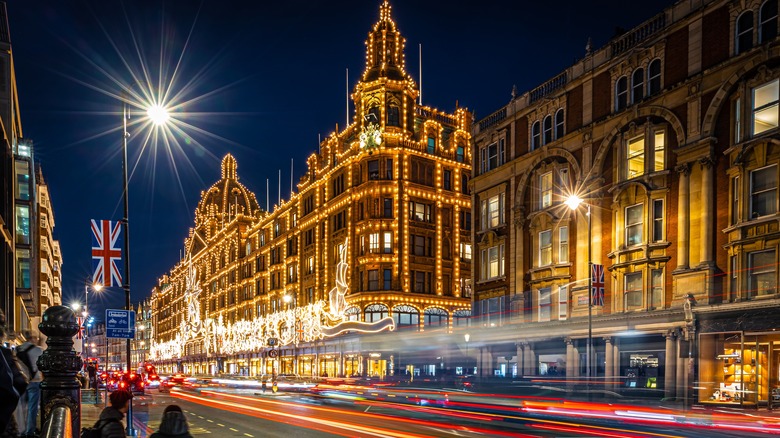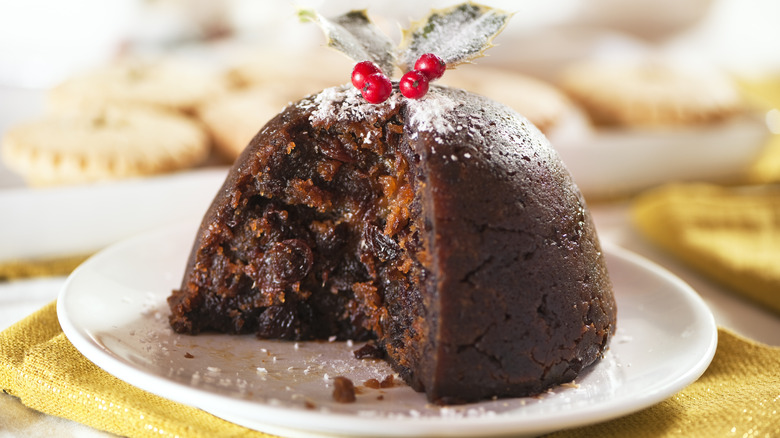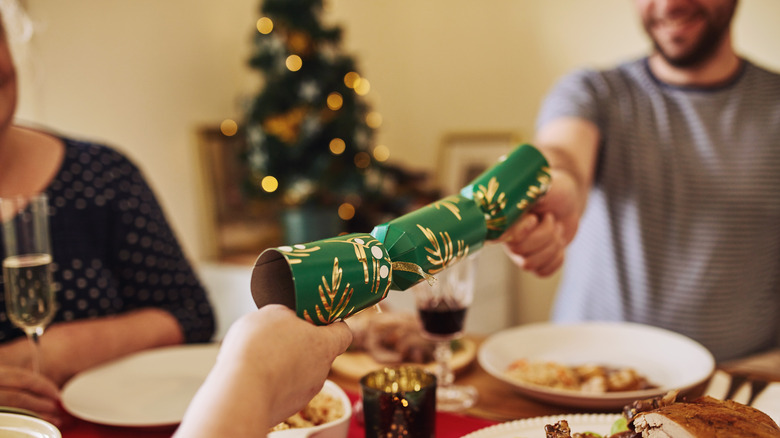Rick Steves' Top Tips For Visiting England During Christmastime
If you're looking for a picture-perfect European Christmas vacation, look no further than England. Christmas is a big deal in Europe, and especially in England. Various cities across the country, including London, have festive things to do and experience. Think Christmas markets, concerts, caroling, and special appearances from Father Christmas (Santa Claus). And of course, there are all the beautiful light displays and Christmas decor to take in.
European travel expert Rick Steves is someone who can't get enough of England during the holidays. He has segments from his iconic show "Rick Steves' Europe" dedicated to Christmas in England. Moreover, in a 2019 article for the Seattle Times, Steves recommended the English cities of Bath and London as must-visit holiday destinations, painting a picture of all the holiday fun there is to enjoy there. Hyde Park Winter Wonderland, for example, features carnival rides, ice sculptures, and an outdoor ice rink, while the Bath Christmas Market also has an outdoor ice rink, as well as locally-made gifts to purchase — an excellent way to take in the beauty of the city as a UNESCO Heritage Site. On his website, Rick Steves' Europe, Steves says that travelers might be surprised to find that some traditions are similar to those in the US, while others are not so much.
Enjoy holiday experiences not found in America
Rick Steves discusses how various Christmas traditions in the U.S., such as decorating Christmas trees and caroling, first became commonplace in England's Victorian Era. But travelers to the country will also be exposed to new holiday activities and foods not common in America. As Steves notes, one of these seasonal novelties is pantomime performances.
"These campy fairy-tale plays entertain with outrageous costumes, sets, and dance numbers," Steves says on his website, describing the slapstick and risqué wordplay that can occur in these shows, amusing both kids and adults. "The audience is encouraged to chime in, and it doesn't take long to learn the lines ('Look behind you!')." These performances are held at different theaters nationwide from early December to early January. Tickets are relatively inexpensive, making it budget-friendly family fun.
As for holiday specialty treats, Steves wrote in the Seattle Times that you can expect to encounter mince pies and plum pudding. Mince pies are small pies featuring a sweet filling made of spices and dried fruit. Likewise, Steves remarks that pudding in the U.K. is not the custard-like dessert Americans are used to. Describing plum pudding (pictured), he says, "It's akin to what we call 'fruitcake' — but the English actually like it."
What to expect on an English Christmas Day
On the evening of Christmas Day in England, King Charles III provides the people with a televised Christmas message. A traditional Christmas meal will also be served, consisting of various dishes and typically featuring roasted turkey, mulled wine, and plum pudding. However, Rick Steves says it would not be an English Christmas meal without Christmas crackers.
This is not something you eat but rather a fun tradition done at the dinner table. Christmas crackers are wrapped paper tubes, invented in the Victorian era, that make a popping sound like a firework. "If you find yourself presented with one, watch and learn," Steves says. "Once everyone's seated and ready, cross your arms, grab on tight to the tabs sticking out the ends of your neighbors' crackers, get ready to pull, and 3-2-1...crack!" These tubes contain little goodies inside, including a paper crown, a silly joke or pun, and a little toy or trinket — accompanied by the bang of actual gunpowder. Wear the crown, read the joke out loud, and devour the rest of your feast.
All in all, Steves' biggest recommendation is for travelers to embrace the holiday spirit despite all the cultural differences they come across. "No matter how you experience an English Christmas," he notes, "enrich your visit by asking the people you meet to describe their families' traditions."


